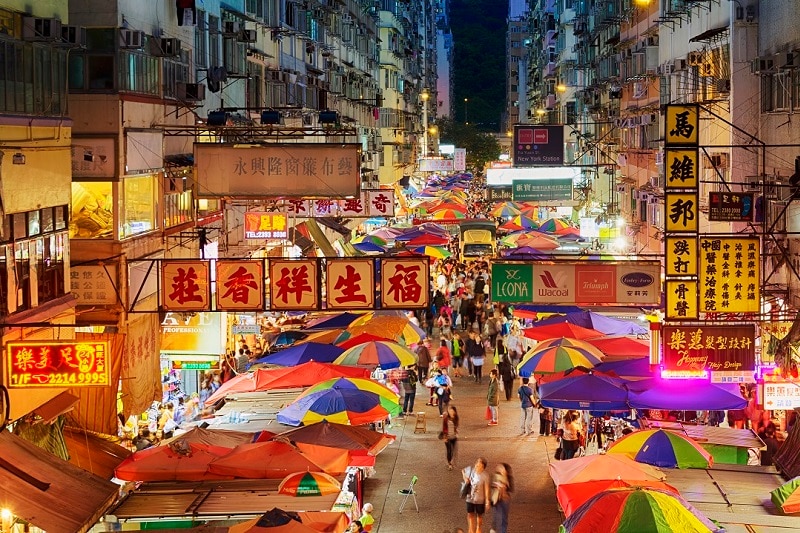
The growing threat of organized crime groups in the Tri-Border Area of South America
13 Dec 2019

The Tri-Border Area of South America (TBA) encompasses three cities in three different countries: Puerto Iguazu in Argentina, Ciudad del Este in Paraguay and Foz do Iguaçu in Brazil. This area is well-known as a major hub for illicit activities ranging from counterfeiting to intellectual property theft to money laundering. It is also a major point for laundering of funds and thought to be a major funding territory for transnational criminal organizations.
Extent of the threat and its impact
Brazilian authorities have estimated that more than USD 6 billion a year in illegal funds is laundered in the TBA, while the situation is aggravated by economic interdependence. Money laundering, helped by anonymity, is exponential in this part of the world.
This issue goes way back: In 2003, almost two years after the attacks of 9/11, the “Terrorist and Organized Crime Groups in the Tri-Border Area (TBA) of South America” report listed organizations that had criminal activities in this area and the types of crimes committed, such as money laundering, automobile smuggling, illicit cigarette trade and counterfeiting and piracy of other consumer goods.
This report said at the time that USD 5 billion was being laundered annually in Paraguay. Most of this money (USD 3 billion) was laundered in Ciudad del Este through its 20 illegal foreign-exchange shops. The laundered money came from five principal sources: Tax evasion, fraud, contraband, assaults, drugs and arms trafficking.
After the terrorist attack of September 2001, the United States identified criminal organizations operating in South America and threatening global security with smuggling, piracy, money laundering, drug and arms trafficking and sexual exploitation.
Hezbollah
The U.S. Southern Command estimates Hezbollah’s benefits between USD 300–500 million a year in South America.
Historically, South American countries have been unwilling to treat Hezbollah’s irregular presence as a terrorist threat, despite U.S. pressure to do so. In July 2019, Argentina was the first Latin American nation to label Hezbollah as a terrorist group after the 25th anniversary of the bombing of a Jewish community center that killed 85 people. Then, Paraguay followed.
Brazil’s president, Jair Bolsonaro, is also considering designating Hezbollah as a terrorist organization, therefore aligning the country’s policy with U.S. foreign policy.
The U.S. administration has boosted security cooperation with governments in South America, gathering their intelligence and technological means. As explained in World Politics Review, “the Trump administration, citing its close relationship with the Israeli government, has also proposed that Israel provide training and equipment to regional governments to help them combat Hezbollah. Argentina, Paraguay, Brazil and Colombia have expressed a willingness to accept such assistance.”
Primeiro Comando da Capital (PCC)
The PCC, also known as “Primeiro comando da Capital,” is considered to be the largest Brazilian criminal organization, with around 11,000 members. Founded in 1993 in jail, members of the PCC mostly operate in Sao Paulo but also in the Tri-Border Area. Their activities generate millions and millions of dollars, growing in strength throughout the years. Investigations have linked the PCC and Hezbollah in drug trafficking operations.
Cigarette smuggling in the TBA
According to a report from Foreign Affairs, “cigarette smuggling is a key source of income for organized crime. Mexican drug cartels, such as Los Zetas and the Sinaloa cartel, have been involved in the distribution of Paraguayan illicit cigarettes. So too have Colombian organizations such as the Revolutionary Armed Forces of Colombia (FARC) and the Urabeños, which use illicit tobacco for money laundering purposes. Reports from as recently as May 2014 suggest that cigarette trafficking in Brazil may be also linked to criminal groups, such as the Red Command and the First Capital Command (PCC).”
During a U.S. Congressional hearing in 2017, Dr. Emanuele Ottolenghi, senior fellow of the Foundation for Defense of Democracies, stated that “the growing presence of Hezbollah-affiliated companies in the tobacco retail business raises another important red flag, namely the possibility that illicit tobacco trade has become an additional source of Hezbollah’s income (…) Drug smuggling routes and cigarette smuggling routes along the Paraguay-Brazil border are indistinguishable. The illicit cigarette trade has helped drug cartels like Colombia’s FARC launder revenue from the sale of cocaine, and, according to Brazil’s Federal Police officials interviewed during a visit to the area in November 2016, it is increasingly drawing the attention and involvement of the Brazilian criminal group First Capital Command, a key Hezbollah business partner.”
Evolution of the situation today: Efforts to counter the use of TBA by organized crime and terrorist groups
Argentina, Brazil and Paraguay have developed cooperative and national efforts to fight illicit activities by organized crime and terrorist groups. However, these efforts are challenged by criminal organizations deeply rooted in the area.
In 2016, Interpol coordinated an eight-day joint operation in the TBA with Argentina, Brazil and Paraguay. More than 300 officers were deployed to key locations. They carried out 25,000 checks on Interpol’s global databases, arrested 25 criminals, seized 750 kilos of drugs including marijuana and cocaine and recovered 14 stolen vehicles.
The head of Interpol Brasilia, Commissioner Valdecy Urquiza Junior, said at the time that “the access to Interpol’s databases played an important role in the success of the operation and again has shown the need for international information exchange. Operations like this show what can be achieved when law enforcement agencies collaborate in the fight against organized crime.”
In 2018, a report by the U.S. Department of State highlighted that Argentina, Brazil and Paraguay were coordinating efforts in the TBA via a trilateral Tri-Border Area command. Special forces and operations were implemented in order to counter organized crime in the region. The government of Argentina established a counter-narcotics task force in Salta Province composed of the four Argentine federal law enforcement agencies and provincial forces. It was such a success that the Ministry of Security decided to create a second task force focused on the northeastern provinces in order to cover the TBA.
In May 2019, Interpol organized a summit with South American police leaders, with the objective of improving regional police performance in their fight against corruption, terrorism, drug and firearms trafficking and the increased use of Interpol databases.
In order to reduce the global security risks caused by the TBA, Raymond Baker, director of Global Financial Integrity, has made three recommendations:
- Creation and implementation of complementary laws underlying money laundering or terrorist finance activities between all the countries that cooperate with the Financial Action Task Force (FATF) in Paris.
- Stronger know your customer (KYC) regulations implemented as they apply to foreign account holders. The FATF has to put comprehensive standards in place and should be the regulatory authority. Presently, “KYC policies are treated as recommendations rather than requirements.”
- A list of corrupted politicians (politically exposed persons, PEPs) from the countries receiving development assistance made available to financial institutions. The use of this list should be required.
The adoption of these recommendations to converge toward a shared, unified goal would certainly be a major step in the fight against criminal organizations, which know how to exploit weaknesses within several regions worldwide to thrive.
Related articles
Share this link
Illicit trade prevention


